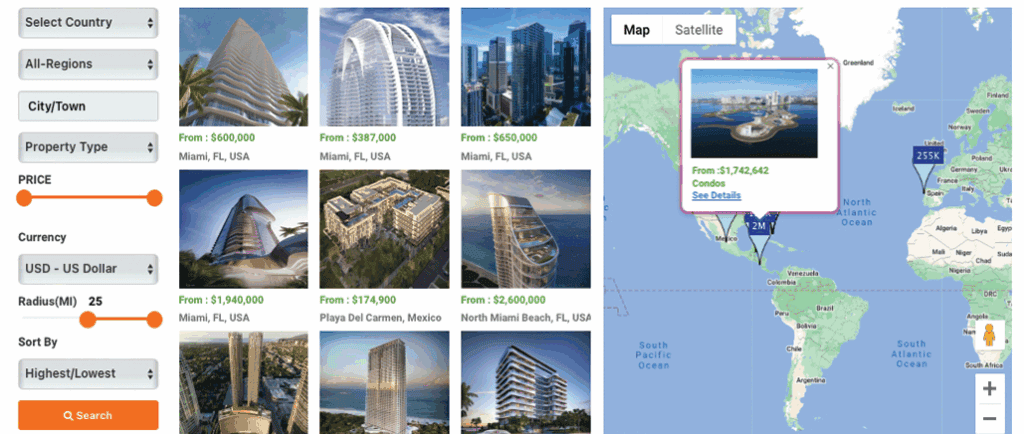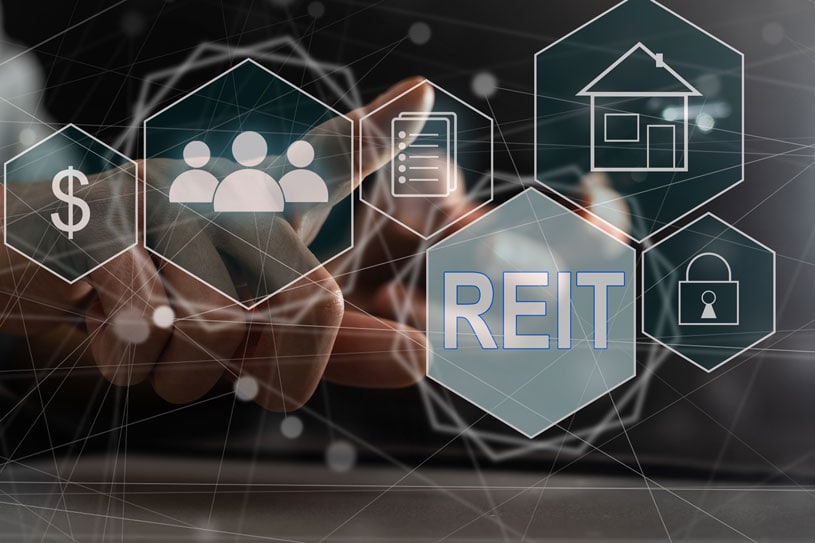The real estate sector is undergoing a transformative shift with the global expansion of Multiple Listing Services (MLS). Originally a localized system for sharing property listings among real estate professionals, MLS has evolved into a global phenomenon poised to reshape how international property transactions are conducted. As international property markets become increasingly interconnected, launching MLS services for global listings has become a critical innovation in the real estate ecosystem.
Overview
This article explores the comprehensive steps and considerations involved in launching MLS services for international property listings. From technical infrastructure and training to analytics and marketing strategies, every facet of the MLS ecosystem is vital for a successful rollout.
Real Estate Development World
Real estate development today is a blend of traditional construction and cutting-edge technologies. Global developers are seeking streamlined platforms that offer transparency, scalability, and efficiency. MLS provides a unified platform for real estate professionals, developers, and investors to connect and transact seamlessly across borders.
The Meaning of the MLS Concept
MLS, or Multiple Listing Service, is a cooperative database used by real estate professionals to share property information. The core value of MLS lies in its ability to consolidate listings into a single, standardized, and searchable system, making property transactions more efficient and trustworthy.
Training Courses for MLS
Training courses are essential for real estate professionals to maximize the benefits of MLS. These programs cover navigation, listing optimization, compliance regulations, and leveraging analytics tools. International training modules often include cultural nuances, currency management, and legal frameworks specific to each region.
Certification for MLS Agents
Certification provides credibility to MLS agents and ensures a consistent standard of service across regions. Certified MLS agents demonstrate proficiency in platform usage, ethical standards, and data accuracy, building trust with clients and stakeholders.
MLS Agent Onboarding Processes
Onboarding new agents involves platform training, account setup, compliance briefings, and mentorship programs. Efficient onboarding ensures agents are ready to list and manage properties effectively from day one.
Optimizing MLS Listings
Optimization includes high-quality photos, accurate descriptions, keyword integration, and updated pricing. Proper categorization and location tagging also improve discoverability, especially for international buyers using filters and translated interfaces.
Artificial Intelligence in MLS
AI enhances MLS by offering predictive search results, automated image tagging, and client behavior analysis. Chatbots and virtual assistants help agents respond to inquiries in real time, improving client engagement.
Analytics in MLS
Analytics tools track property performance, lead conversion rates, and market trends. These insights empower agents and investors to make data-driven decisions, enhancing ROI and reducing transaction risks.
Economic Impact Analysis in MLS
Economic impact analysis identifies how property developments listed on MLS platforms influence local and international economies. Factors include job creation, housing demand, infrastructure development, and foreign direct investment.
MLS Data Quality Management
High-quality data is crucial for credibility. This involves regular audits, duplicate listing detection, format standardization, and real-time error reporting. Quality control ensures the platform remains reliable and effective.
MLS Data Security Standards
Data protection is paramount. MLS systems must adhere to international cybersecurity standards, including encryption, two-factor authentication, and compliance with GDPR and other data privacy regulations.
Fix and Flip in MLS
MLS supports fix-and-flip strategies by helping investors identify undervalued properties, access renovation estimates, and monitor resale trends. Listings can be filtered by potential ROI and renovation needs.
MLS Property Valuation Tools
Integrated valuation tools offer real-time pricing estimates using AI and market data. These tools help agents, buyers, and appraisers determine fair market value for properties across various regions.
How to Use MLS to Build a Rent-to-Own Portfolio
MLS platforms help investors identify suitable rent-to-own properties by flagging listings with owner-financing options, long-term vacancy histories, and flexible terms. Portfolios can be managed directly within MLS.
Using MLS to Source Lease Option Opportunities
Lease options can be sourced by filtering listings by seller motivation and financing type. MLS platforms often include contact tools and documentation templates to facilitate negotiations.

Launching MLS Services for International Property Listings
Launching an international MLS requires robust infrastructure, multilingual support, legal compliance, and local partnerships. It involves mapping regional listing standards into a unified framework and offering flexible access models.
Cross-Promotion Strategies in MLS
Cross-promotion includes showcasing listings on partner platforms, collaborating with travel agencies, and promoting through real estate influencers. It boosts visibility across different buyer segments and regions.
MLS Lead Generation
MLS systems integrate lead generation features such as custom landing pages, CRM tools, and behavioral analytics to capture and nurture leads from global traffic.
Digital Marketing for MLS
Digital campaigns involve SEO, PPC, and content marketing strategies that target international audiences. Platforms use listing-based ad placements, local language campaigns, and geo-targeted messaging.
MLS Email Marketing Integrations
Email automation tools allow agents to send personalized updates, alerts, and newsletters. MLS integrations help segment audiences and track open and conversion rates.
Social Media Integration in MLS
MLS platforms integrate with Facebook, Instagram, LinkedIn, and TikTok to share listings and attract interest. Tools often include scheduling, analytics, and ad management.
Machine Learning Models for MLS
Machine learning improves listing recommendations, predicts pricing trends, and assesses buyer profiles. These models enhance personalization and operational efficiency.
Avoiding Legal Trouble When Wholesaling MLS Properties
Legal compliance involves understanding assignment clauses, disclosure requirements, and local licensing laws. MLS training should include wholesaling laws in relevant jurisdictions.
Sustainable Development Data in MLS
MLS listings now include sustainability metrics such as energy ratings, carbon footprints, and green certifications, appealing to environmentally conscious investors.
Renewable Energy Integration in MLS
Properties with solar panels, wind energy systems, or smart grids are tagged and promoted within MLS. This helps green properties stand out to eco-investors.
Process Improvement in MLS
Process optimization includes automation of data entry, integration with other platforms, and responsive customer support systems to streamline agent workflows.
Innovation Hubs in MLS
MLS innovation hubs foster collaboration between tech developers, agents, and startups to pilot new tools, test integrations, and drive continuous platform evolution.
MLS Review and Reputation Systems
User reviews and agent ratings build trust. Reputation systems encourage accountability and provide transparency in transactions.
Venture Capital Investments in MLS
MLS platforms are attracting VC funding due to their scalability and potential for global adoption: investments fuel R&D, market expansion, and talent acquisition.
MLS Market Trend Predictive Modeling
Predictive models use historical and current data to forecast future demand, price shifts, and emerging hotspots, enabling proactive investment strategies.
MLS Operational Efficiency Solutions
Automation tools, chat integrations, and centralized dashboards reduce administrative tasks, enabling agents to focus on client relationships and sales.
MLS Platforms
Top platforms include Realtor.com, Zillow, and custom international platforms tailored for regional markets. Each has distinct features like AI tools, global search filters, and white-label solutions.
MLS Professional Development
Ongoing training, certification renewals, and international seminars ensure agents stay competitive and up to date with evolving trends and tools.
MLS Personalization Features
User dashboards with personalized recommendations, saved searches, and custom alerts enhance usability and engagement.
User Experience Design for MLS
Intuitive interfaces, mobile optimization, and multilingual support make MLS platforms accessible to a global user base.
Usability Testing in MLS
Continuous feedback, A/B testing, and beta trials help platforms refine UX and address pain points.
Frequently Asked Questions
Can foreign buyers use MLS?
International buyers can access MLS platforms, often with translated interfaces and local agent support.
How accurate are MLS valuations?
Valuations are powered by AI and market data, offering reliable estimates, but users should verify with appraisers.
Is MLS secure for financial transactions?
While listings are secure, financial transactions should be conducted through regulated escrow services.
Launching MLS services for international property listings is a strategic move that connects the world through real estate. By integrating technology, local expertise, and global standards, MLS platforms empower agents, investors, and developers to collaborate across borders, streamline operations, and unlock new market opportunities. As we move into a future of interconnected real estate markets, the global MLS is not just a tool—it’s a transformational force.










